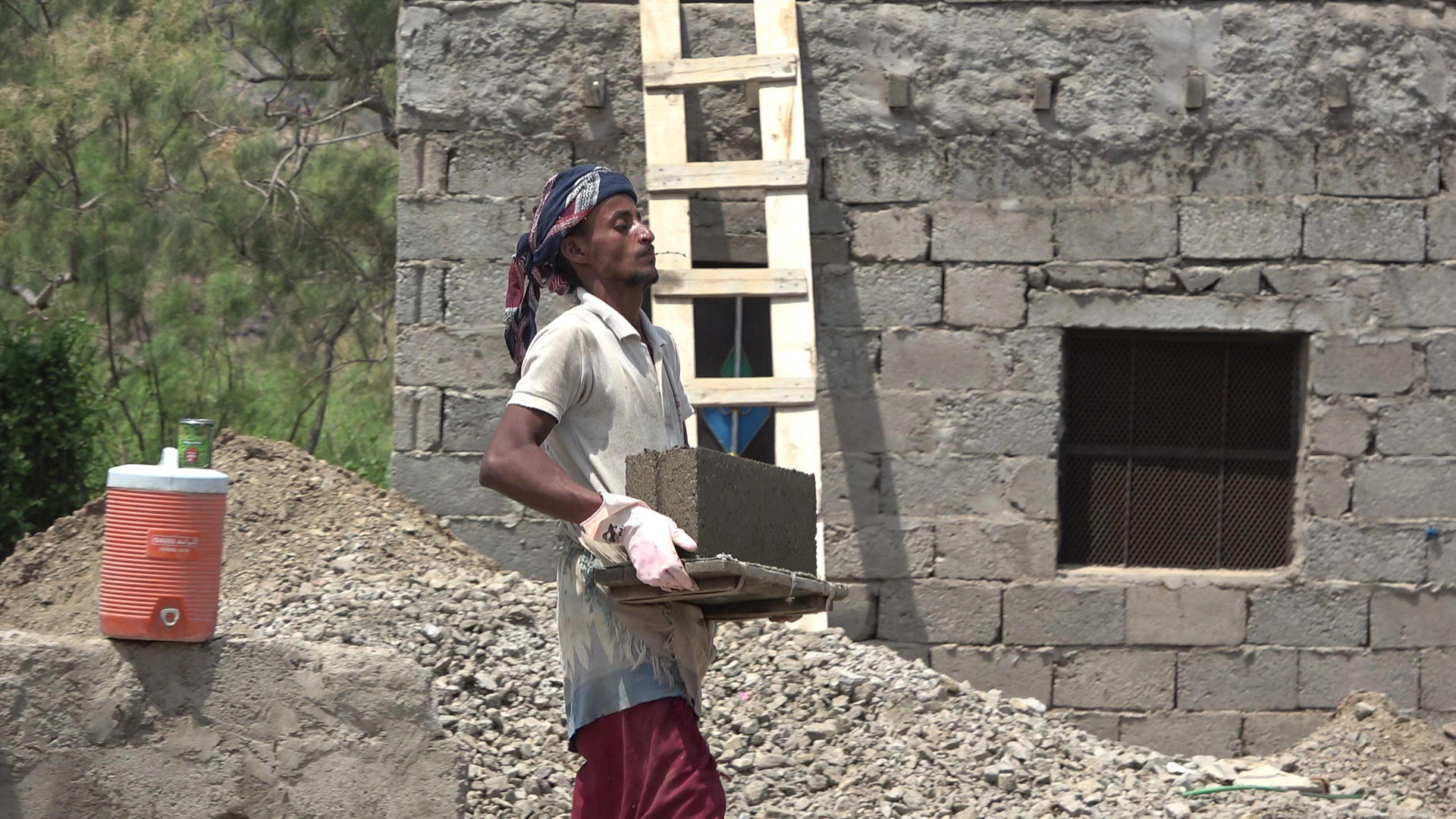Aden
- "I will not return to work in the areas controlled by the legitimate government if I am not able to obtain housing to transfer my family to my current place of work," with these words Abboud Khabti began talking to Al Jazeera Net after asking him about the method of his financial transfers to his family living in areas under the control of the Houthis. in northwestern Yemen.
Khabti, who is a daily wage worker in the construction field, attributed the reason to the high rate of transfers that exchange companies take from the internationally recognized government’s control areas, reaching half the amount transferred due to the exchange difference, as the Houthi group prevents dealing with the government’s new version of legitimacy.
Khabti - who works in Lahj Governorate (southern Yemen) complains about his suffering from the monthly transfer fees imposed by exchange companies in exchange for transfers to his family residing in Al-Hussainiya in Hodeidah (west of Yemen), which is under the control of the Houthis, where he deducts about a third of the amount.
Since his arrival 6 months ago to Lahj Governorate, Khabti has been waiting for the situation that harmed this working class to improve, but to no avail. From 140 dollars he transferred through an exchange company from Aden to his family in Hodeidah, his family received only 90 dollars, while the sum deducted went to the exchange company in exchange for transferring the amount Which made him decide to return to his hometown unless he got a house at his place of work to move his family with him.
Khabti is one of 4.2 million people of informal employment in Yemen, according to the Central Bureau of Statistics, out of the total working-age population in Yemen, of whom 74% work in the informal sector.
A field survey of the General Federation of Trade Unions for the informal sector in Yemen reveals that there is a large percentage of workers in the informal sector who do not have work contracts, as the survey percentage showed that there are 88% without contracts.
According to the survey, only 4% of workers in the irregular sector have contracts with employers, while out of a total of 17% who were exposed to work injuries, only 3% received work injury compensation.
But the official spokesman for the Exchangers Association in Aden, Subhi Baghfar, tells Al Jazeera Net that the amounts that are deducted are not commissions or fees as much as the exchange difference between the areas under the legitimate government and the Houthis, and this difference is what made many exchange companies deduct this large amount of money.
A large percentage of workers in the irregular sector in Yemen do not have work contracts (Al-Jazeera)
Exploitation and manipulation
In turn, the official spokesman for the Exchangers Association in Aden confirmed the existence of great exploitation and manipulation by the exchange and remittance market and networks in Yemen, where there is a speculative process resulting from the wide spread of individual institutions and companies in the banking sector, which caused the inability to control it, and this means the necessity of The existence of a mechanism from the Central Bank to remedy these problems in all governorates.
Far from his family and children, Muhammad al-Haddar spent the blessed Eid al-Adha, where he works in the city of Aden selling snow after the conditions of the high rates of transfers to the city of al-Bayda (central Yemen) imposed on him collecting his salary estimated at 60 dollars per month for 3 months, and transferring it to his family to reach them 120 dollars after Deduction of $60 fare for the transfer by the exchange company.
Two independent currencies
For his part, Mustafa Nasr, head of the Economic Media Center, says that the imbalance in the issue of the exchange rate or the differences in the currency rate has greatly affected the daily wage workers, which reflects the level of conflict and the involvement of the economic side in this conflict.
Nasr pointed out that when the Houthi group took the decision to ban the new currency denominations, it created two different prices: a fixed price in the Houthi-controlled areas, and a floating and free price in the legitimate government-controlled areas, which is subject to supply and demand, and greatly exacerbated the price of the riyal in the government-controlled area.
He added that this matter exacerbated the issue of commissions, as it became as if we had two independent currencies, and that is why when exchange companies carry out the transfer process, it is as if they are buying the currency at the price of the control of the government area, and in return they buy old currency in the Houthi-controlled areas to give it to the beneficiary, and this major defect is supposed to be addressed by pressure to improve the price Exchange in government-controlled areas and re-dealing with the Yemeni currency in all areas.
low imports
According to a study by the Center for Media and Economic Studies, the decision not to deal with the cash issuance will lead to a scarcity of commodity stocks, with the risks that this poses to food security, especially that about 20 million people (76% of the population) suffer from severe food shortages in the region. Lack of humanitarian aid.
Yemen is among the most severely food insecure countries in the world, as it is expected that most commodity imports will decline as a result of the implementation of this resolution, as United Nations data indicate a decrease in imports that were authorized to enter through the United Nations Office for Inspection of Incoming Materials. To Yemen, the average volume of monthly imports decreased to 262 metric tons in 2018, a decrease of 18% compared to the previous year and 25% compared to before the war.

